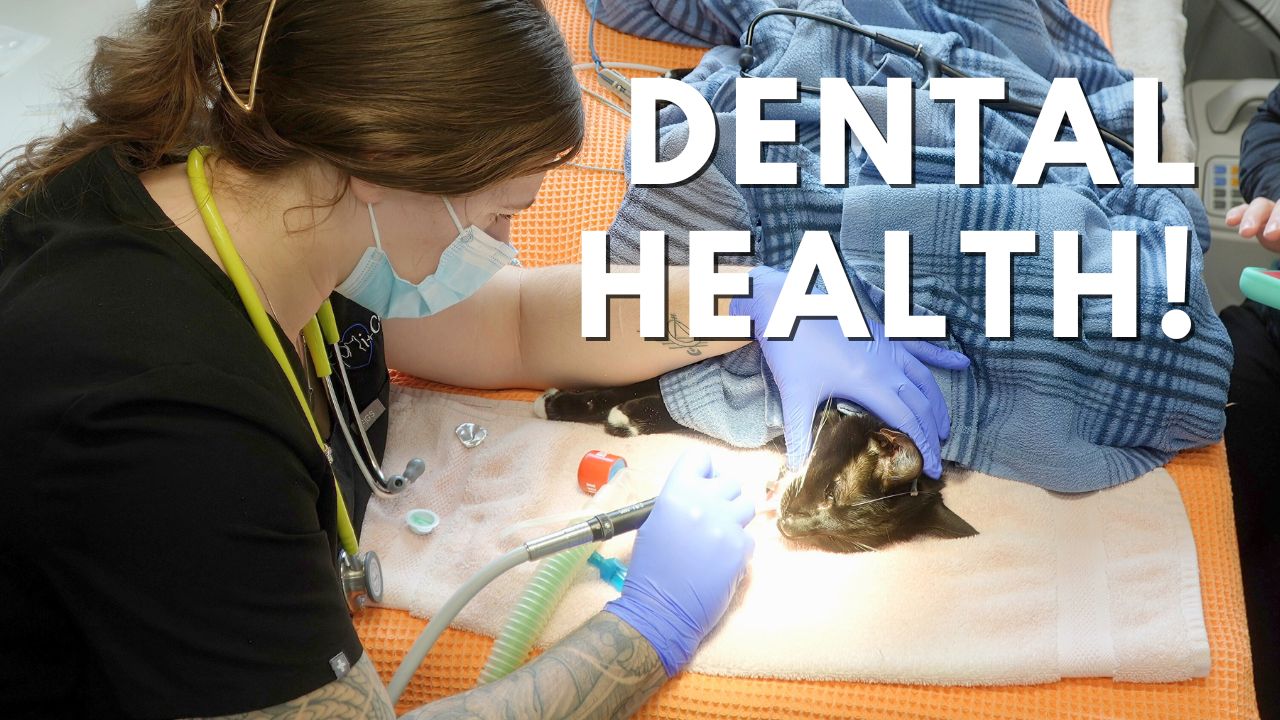06 Jan Kickstart the New Year with a Healthy Smile – Why Dental Care Matters for Pets
The new year is the perfect time to set fresh goals—not just for yourself but for your furry companions, too! While we often focus on exercise and diet, dental health is one area of pet care that’s frequently overlooked. Did you know that over 80% of dogs and 70% of cats show signs of dental disease by age three? At i-Care Veterinary Hospital, we’re gearing up for Dental Health Month in February to help pet parents tackle this often-hidden issue. One of the best ways to keep your pet’s teeth healthy is through a Comprehensive Oral Health Assessment and Treatment (COHAT)—a thorough evaluation and cleaning that goes far beyond what can be achieved at home. https://youtu.be/EtJ8W_s4HQw What is a Dental COHAT? A Comprehensive Oral Health Assessment and Treatment (COHAT) is a complete dental service that addresses both prevention and treatment of dental disease. This procedure involves: A full dental probing and evaluation of each tooth. Intra-oral x-rays to assess the tooth roots and surrounding bone structure. Hand and ultrasonic scaling to remove plaque and tartar above and below the gumline. Extractions of damaged or infected teeth to prevent chronic pain and infection. Because pets require general anesthesia for a COHAT, we’re able to provide thorough cleaning and treatment—something that cannot be achieved with an awake animal. Why Does Dental Health Matter? Dental health affects more than just your pet’s teeth and gums—it’s closely linked to their overall health. Prevents Infection and Pain. Bacteria from untreated dental disease can enter the bloodstream and spread to vital organs like the heart and kidneys, leading to serious health complications. Reduces the Risk of Tooth Loss. Tartar buildup leads to gingivitis, which breaks down the periodontal ligaments holding teeth in place, eventually causing tooth loss. Protects Against Bone Damage. Left untreated, infection can spread to the jawbone, resulting in abscesses or even jaw fractures, especially in smaller pets. Improves Quality of Life. Healthy teeth allow pets to eat comfortably, stay active, and avoid the pain of fractured teeth or infected gums. How Dental Disease Develops Without daily brushing, plaque forms when bacteria, saliva, and food particles mix. Over time, plaque hardens into tartar, which causes gum inflammation (gingivitis). If untreated, this can: Damage the periodontal ligaments, leading to tooth mobility. Cause infection and abscesses at the tooth roots. Allow bacteria to enter the bloodstream, impacting organs like the heart, liver, and kidneys. Result in broken teeth that expose the pulp cavity, creating a direct...

